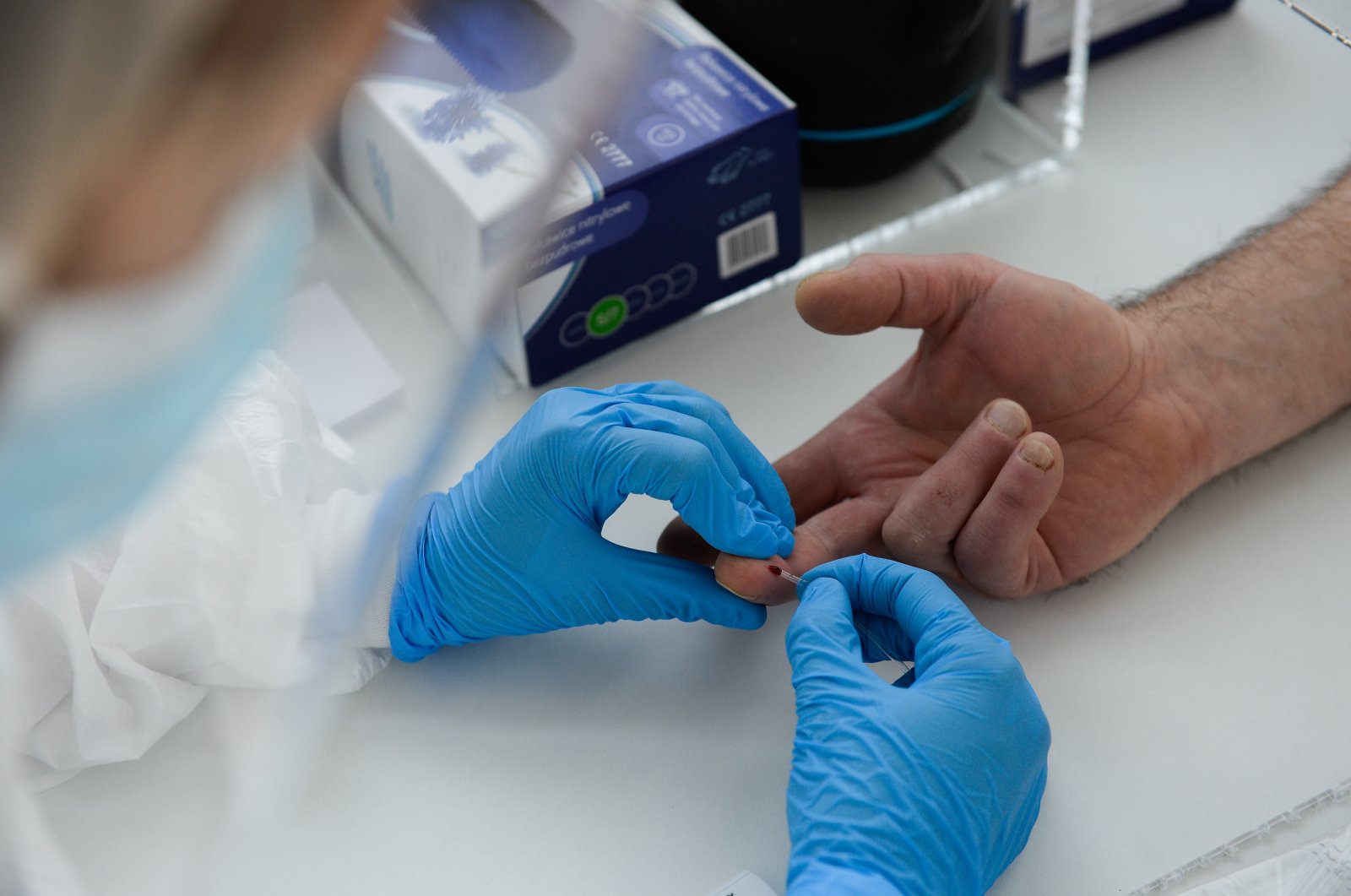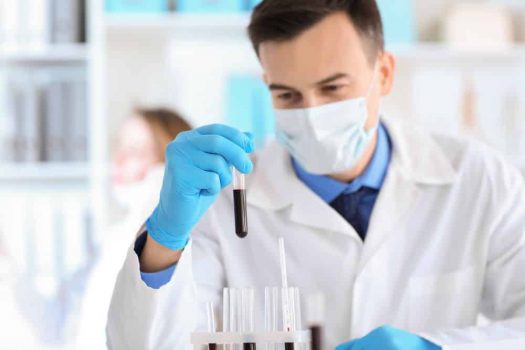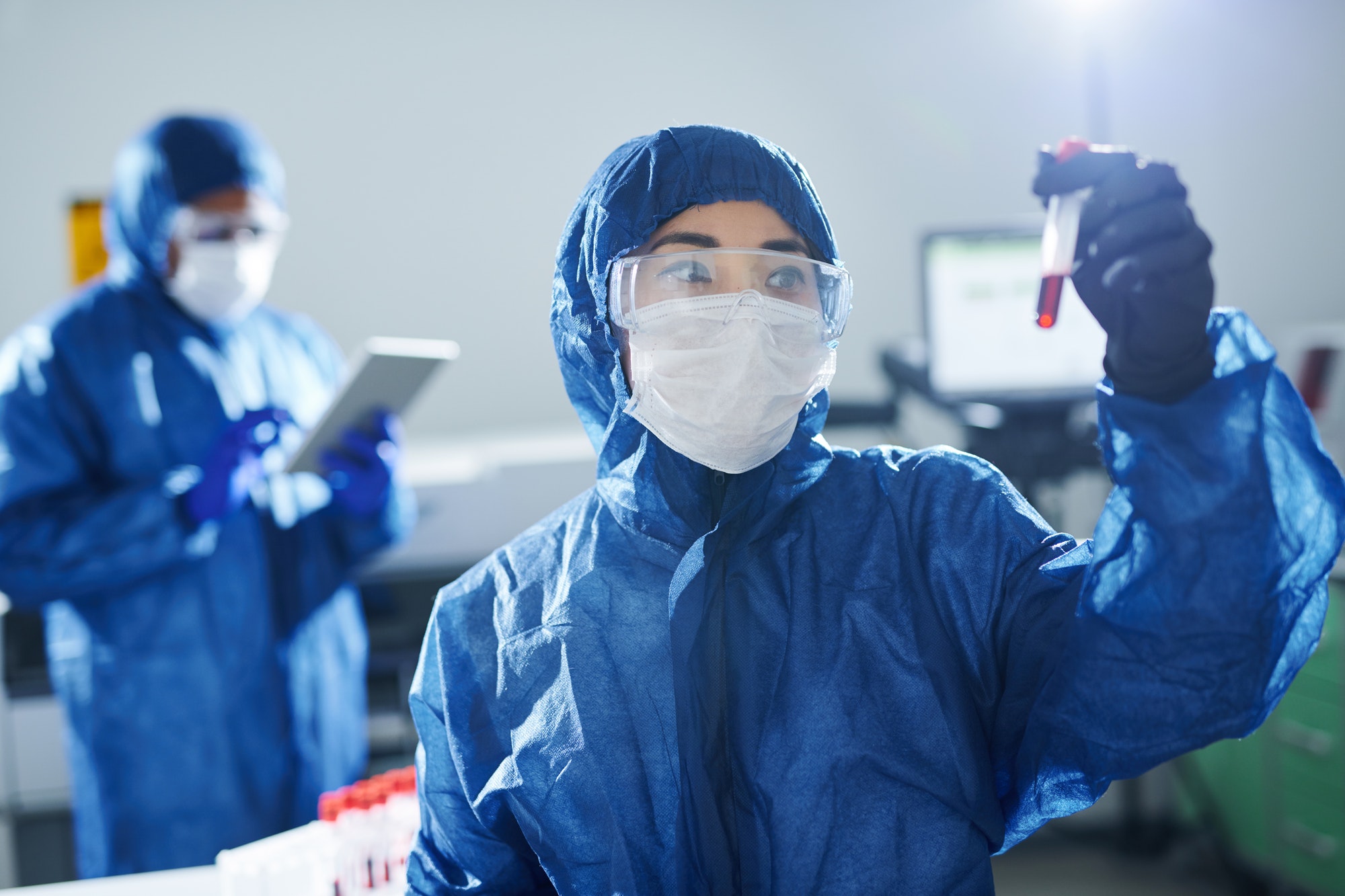Laboratory Testing Strategies by WHO for COVID-19
COVID-19 Anti-body Test
Have Any Questions?
If you have any query or looking for the best medical laboratory then Bio Covid Lab is always there. feel free to Contact.
What is COVID-19?
Coronavirus Disease 2019 (COVID-19) is caused by severe acute respiratory syndrome coronavirus 2 (SARS-CoV-2). COVID-19 was identified in December 2019 and declared a global pandemic by the World Health Organization in March 2020.
Type and severity of symptoms of an active COVID-19 infection vary greatly between individuals depending on the age, gender, and underlying medical conditions. The most commonly reported ones include fever, loss of smell, coughing, sore throat, shortness of breath or difficulty breathing, feeling weak or lethargic, chills, muscle pain, light-headedness or dizziness, headache, vomiting or diarrhea, slurred speech, and/or seizures. Less common symptoms include stuffy nose, conjunctivitis (pink eye), dizziness, confusion, abdominal pain, and skin rashes or discoloration of fingers or toes.
Type and severity of symptoms of an active COVID-19 infection vary greatly between individuals depending on the age, gender, and underlying medical conditions. The most commonly reported ones include fever, loss of smell, coughing, sore throat, shortness of breath or difficulty breathing, feeling weak or lethargic, chills, muscle pain, light-headedness or dizziness, headache, vomiting or diarrhea, slurred speech, and/or seizures. Less common symptoms include stuffy nose, conjunctivitis (pink eye), dizziness, confusion, abdominal pain, and skin rashes or discoloration of fingers or toes.

What is the COVID-19 Antibody (Serology) test?
Antibodies are proteins generated by our immune response to infectious agents. They have many protective functions, such as preventing viral entry into host cells. Antibodies can be produced even if a person has few or no symptoms during the infection.
COVID-19 antibody test detects antibodies reactive to SARS-CoV-2 viral proteins. This test can be used to assess recent or previous infection with SARS-CoV-2. This test is most accurate when sample is collected 3-4 weeks after onset of symptoms or 3-4 weeks after exposure.
At this time, it is not known if the presence of antibodies to COVID-19 means you are immune to the virus and protected from re-infection. Importantly, it is not known how long antibody response to COVID-19 virus lasts. Based on current studies, antibodies to COVID-19 virus can be detected up to 4 months post-exposure, but levels vary depending on individual immune response as well as disease severity, with levels higher in severe and lower in milder/asymptomatic cases.
The test detects antibodies against the nucleocapsid (N) protein of the SARS-CoV-2 virus, while vaccines elicit antibodies to the spike (S) protein of the virus particle (1). Detection of antibodies in response to vaccination requires a test directed towards the SARS-CoV-2 viral spike protein.
Process: Rapid antibody testing involves taking a blood sample from the finger and putting it in a testing template. The blood is then examined for two types of antibodies – IgM antibodies, which appear early in an infection, and IgG antibodies, which are more likely to show up later.
Process: Rapid antibody testing involves taking a blood sample from the finger and putting it in a testing template. The blood is then examined for two types of antibodies – IgM antibodies, which appear early in an infection, and IgG antibodies, which are more likely to show up later.
When to consider COVID-19 Antibody testing
If you suspect that you previously had COVID-19, even if you never showed symptoms or signs of illness, your healthcare provider can order an antibody test to assess recent or prior infection. Antibody responses to the virus take some time to develop and vary between individuals.
For most accurate results (results with highest sensitivity) it is recommended the antibody test is ordered 3-4 weeks post-onset of symptoms or post-exposure. However, based on current studies, antibodies to COVID-19 virus can be detected up to 4 months post-exposure.
For most accurate results (results with highest sensitivity) it is recommended the antibody test is ordered 3-4 weeks post-onset of symptoms or post-exposure. However, based on current studies, antibodies to COVID-19 virus can be detected up to 4 months post-exposure.


Understanding your results
- The COVID-19 antibody test is not to be used for diagnosis of an active COVID-19 infection. The molecular test is used to diagnose infection.
- The result of COVID-19 antibody test cannot tell you whether or not you have a protective immunity against the virus.
- The result of COVID-19 antibody tests cannot tell you whether or not you are infectious (actively shedding virus).
